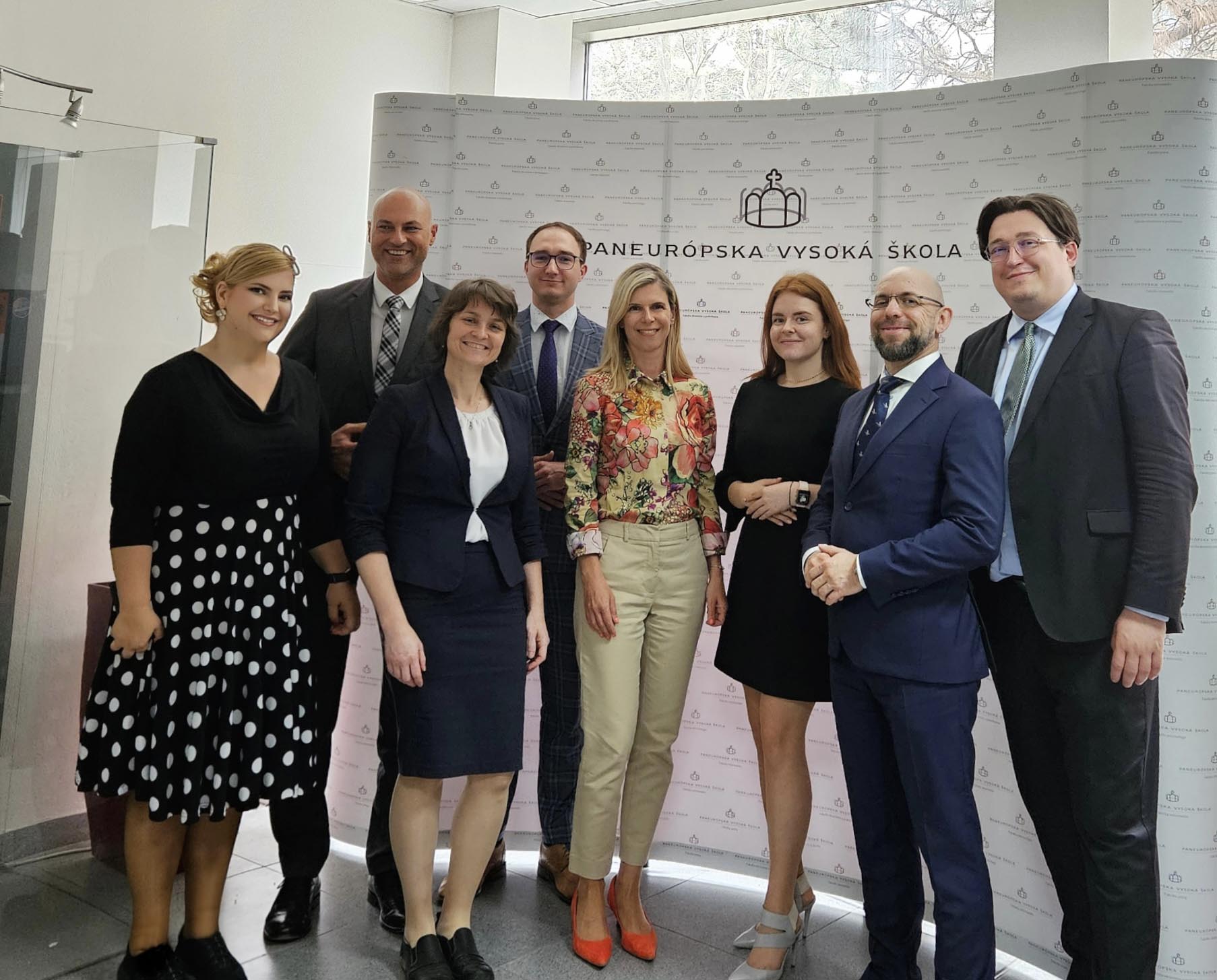Anti-Violence Law in Poland and Slovakia
2024-04-29

“Models of Domestic Violence Prevention” was the title of a scientific conference held at the Pan-European University in Bratislava. Representatives from the Institute of Justice participated in the scientific debate, presenting the latest legislative solutions of anti-violence law in Poland.
At the invitation of Prof. Katarína Šmigová, Dean of the Faculty of Law of the Pan-European University in Bratislava, a delegation from the Institute of Justice attended the international scientific conference “Models of Domestic Violence Prevention” on April 15th.
Prof. Marcin Wielec, Director of the Institute of Justice, emphasized the importance of such conferences and international cooperation in scientific research. He highlighted the Institute’s achievements within the Polish-Norwegian project “Integrated System for Domestic Violence Prevention.” During the scientific panel, Prof. Wielec discussed new solutions for violence protection laws in Poland, such as the anti-violence laws 1.0 and 2.0. He also pointed out the positive impact of the Institute’s research on the final shape of these new regulations.
Deputy Director of the Institute of Justice, Prof. Paweł Sobczyk, detailed the amendments to the Family and Guardianship Code, known as the “Kamilka Act,” which was enacted following the tragic death of a boy in Częstochowa. This law includes several solutions aimed at better protecting children from violence and providing comprehensive assistance in cases of harm.
The Polish delegation also included a team working on the “Integrated System for Domestic Violence Prevention” project from the Institute’s Center for Strategic Analysis. Dr. Bartłomiej Oręziak, the project manager, presented research findings and provided a summary of all project phases, results, and conclusions. – “The model for domestic violence prevention has been implemented and tested in municipalities with the help of a coordinator. Surveys, focus groups, and in-depth interviews were conducted in these municipalities. Based on these, the research team proposed a final model for family violence prevention and a relational risk assessment tool for household members,” explained Dr. Oręziak.
Deputy Project Manager Tomasz Bojanowski elaborated on the research and evaluation process of the developed model. – “Our model was developed in practice during the test phase in selected municipalities, followed by surveys, group interviews, and individual interviews commissioned by the Institute in these municipalities,” said Bojanowski.
During the presentation, members of the Polish delegation discussed recommendations for changing the violence prevention model and ways of its implementation, which are the results of the Institute’s research. Julia Starybrat from the Institute of Justice also presented legal solutions developed within the project, indicating that all proposals would be published in the monograph “Integrated System for Domestic Violence Prevention.”
At the Polish-Slovak scientific conference, the Slovak Children’s Ombudsman, Prof. MUDr. Jozef Mikloško, spoke about selected aspects of domestic violence prevention from the perspective of the Children’s Ombudsman in Slovakia. He outlined the scope of his powers and their use in specific cases.
Doctoral student and school psychology specialist Silvia Majerčáková Albertova discussed the prevention of domestic violence in Slovakia from a psychological perspective. She highlighted the significant role of psychologists in court proceedings involving children, which is further complicated by the drastic increase in demand for psychological services in Slovakia.
During the conference, Marcela Tittlová discussed selected institutions of substantive and procedural criminal law in Slovakia that are significant in the context of domestic violence cases. Dr. Lilla Garayová summarized the debate on the Slovak system for violence prevention, pointing out the positive aspects of the legal system and institutions that require revision and change.
During the international scientific debate, anti-violence solutions were discussed from a comparative legal perspective between the two countries. The delegation from the Institute of Justice noted that in recent years, Poland has seen many changes in preventing and combating domestic violence, and now more attention needs to be paid to the practical application of these regulations. In contrast, Slovak legislators are not working as intensively on legal changes in this area, with no comprehensive legal changes in recent years.
On April 16th, the Institute of Justice delegation participated in a discussion on further international cooperation. The results of previous Polish-Slovak cooperation within the implemented projects, such as the Polish-Slovak Research Platform, Comparative Research Platform, and European Professor’s Network, were presented and discussed. Research segments that may seem crucial in the near future for the functioning of a democratic rule of law, and thus require further comparative analysis, were identified.








